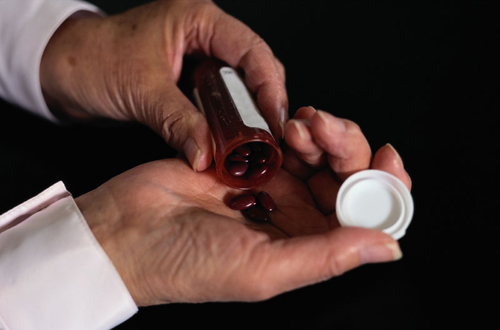| Q: |
I’ve tried over-the-counter medications to treat my migraine
attacks but they don’t seem to be working. Is it time to see my doctor?
|
| A: |
Over-the-counter medications can be considered effective for
abortive migraine therapy when they completely stop an attack in 2 hours
or less. If you have migraine attacks that are not aborted in 2 hours,
or if an attack recurs, you need to see your doctor to find out what the
problem is. He or she may prescribe more potent medication for your
abortive therapy. Nearly all of your migraine attacks must be limited to
2 hours or less and occur no more than twice a week or you are at risk
of chronic daily headache.
|
| Q: |
How important is it that I choose the “right” doctor for my migraine treatment?
|
| A: |
Using prescription medication for your attacks requires that you
see a doctor who knows how to treat people with migraine. Although
medical schools and hospitals are trying to better educate students
about migraine, not all doctors know as much about migraine as they need
to. All too often people with headaches are evaluated for a “real
disease” causing their headaches, then simply given a pain pill when
tests show no evidence of disease. You may need to research the
appropriate treatment program.
|
| Q: |
Why do people wait so long before they go to a doctor about their migraine?
|
| A: |
Many migraine sufferers are unaware of the advancements in
migraine treatment and believe that nothing can be done about their
headaches. Some believe their headaches are a “normal” part of their
life, while others put off seeing a doctor until attacks become so
frequent and severe they are forced to seek medical help. In fact, it is
much better to seek help early, before problems become chronic.
|
| Q: |
Are there different medical approaches to treating a migraine attack?
|
| A: |
When your doctor prescribes a treatment plan for your migraine
attack, he or she can use either of a couple of possible approaches:
stratified care (the use of different medications depending on the
severity of your attacks) or step care (which is the use of the same
medications everytime).
|
| Q: |
How does stratified care of a migraine attack work?
|
| A: |
Stratified care is a method of treating a migraine attack based
upon the severity of the attack and the level of disability it causes.
For example, if the migraine attack starts out slowly with a mild
headache during the day, then you could abort it with a simple
analgesic. But, if you were to wake in the middle of the night suffering
from a full-blown migraine with severe headache and vomiting, you might
need a self-injectable migraine medication and a rectal suppository for
vomiting. It is important to use the method that is the most effective
for aborting the attack as soon as possible. It is not enough to feel
better; you must stop the attack otherwise your migraine could get
worse.
|
| Q: |
What is step care of a migraine attack?
|
| A: |
When step care is used to treat a migraine attack, the same
therapy is used no matter how the attack starts. If the therapy does not
work it is changed. This approach is less effective than stratified
care because it may lead to the prolonged use of ineffective medication
or poorly tolerated drugs. Studies have shown that stratified care
provides a better treatment response than step care. If the therapy you
are using does not abort the headache completely in less than 2 hours or
if your migraine attack recurs, you must change your abortive approach.
The ineffective treatment of migraine attacks can cause progression of
migraine and the development of chronic daily headache.
|
Myth or truth?
Myth
“It is OK to use over-the-counter medications as often as I want”
Truth
Many people who
take over-the-counter medications for what they believe to be tension
(stress-related) headache or sinus headache have mild to moderate
headaches caused by migraine. They may feel it is not harmful as long as
they do not exceed the recommended dosage. If you use over-the-counter
tension or sinus headache medications more than a couple of days a week,
you are at risk of medication overuse headache.
